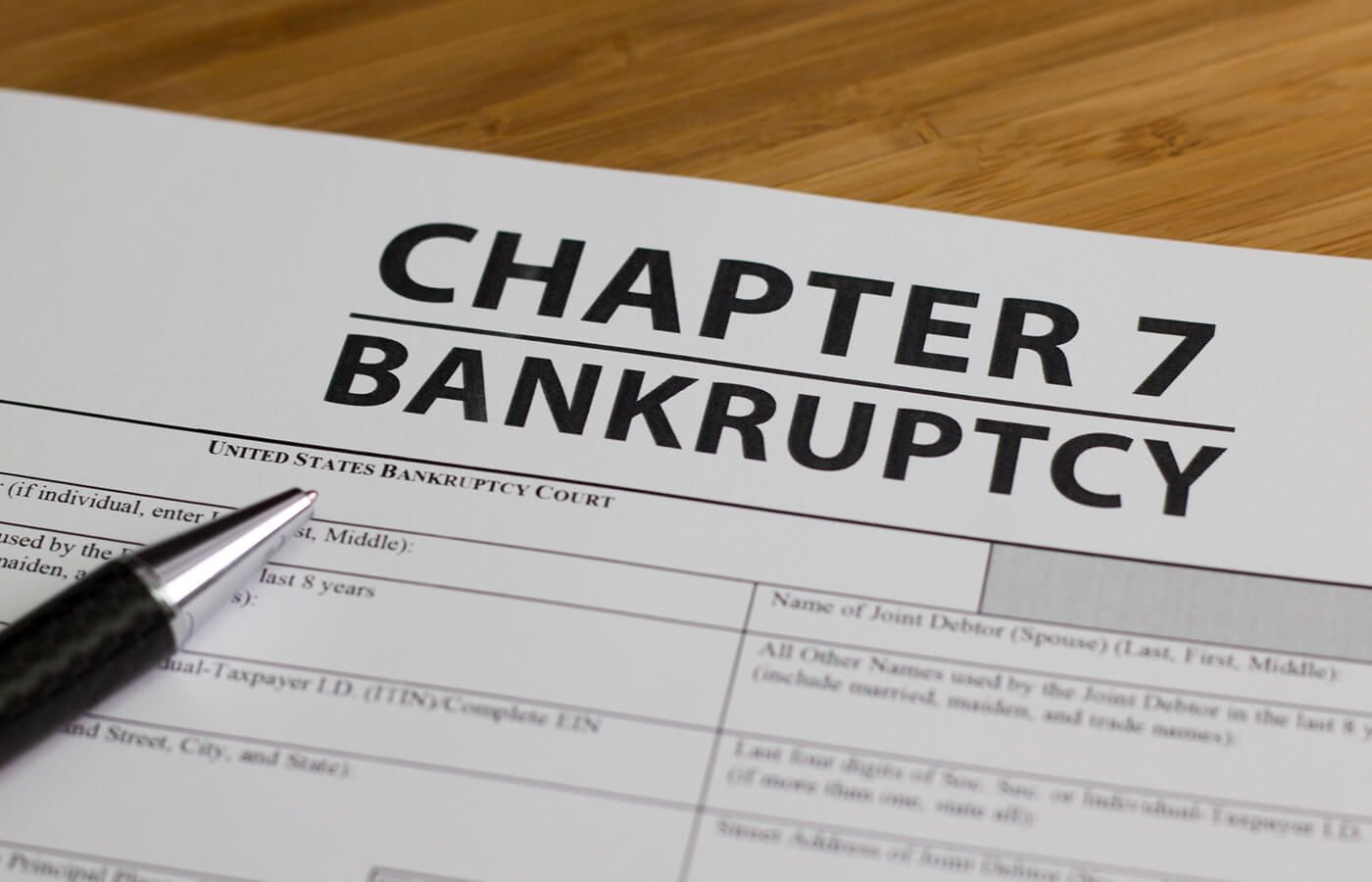Simplifying Chapter 7 Bankruptcy Debt Relief Laws in Florida

Posted on September 30, 2024.
When it comes to navigating the world of bankruptcy, it's no secret that things can quickly become confusing and intimidating. This is especially true when it comes to Chapter 7 Bankruptcy, which can seem like a daunting process at first glance.
But fear not, for there is hope in simplifying this complex topic. In this article, we will discuss the ins and outs of Chapter 7 Bankruptcy debt relief laws in Florida.
By the end, you'll have a better understanding of what this type of bankruptcy entails and how it can potentially provide relief for those struggling with debt.
Understanding Chapter 7 Bankruptcy Laws
Understanding Chapter 7 Bankruptcy Laws in Florida can make the difference between navigating your financial difficulties confidently and feeling overwhelmed by the process.
At its core, Chapter 7 Bankruptcy allows individuals to discharge most of their unsecured debts, offering a fresh start to those burdened with insurmountable financial obligations. The process involves what is known as bankruptcy liquidation, where your non-exempt assets are sold, or liquidated, to repay creditors.
However, Florida law provides several exemptions that could enable you to retain certain essential assets like your primary residence, car, and personal items, making the process much less daunting than it might initially seem.
In Chapter 7 Bankruptcy, one significant player is the Bankruptcy Trustee. Appointed by the court, the trustee's role is vital to ensure the process runs smoothly and fairly for both you and your creditors. The trustee reviews your bankruptcy petition, schedules, and financial documents.
They also conduct a meeting of creditors, sometimes referred to as the 341 meeting, where they ensure you understand the privileges and consequences of filing for Chapter 7 Bankruptcy. The trustee also identifies any non-exempt assets for liquidation and ensures the proceeds are fairly distributed among your creditors. Working with the trustee can seem intimidating, but remember, they are also there to facilitate your path to debt relief.
When discussing bankruptcy liquidation, it is crucial to understand its functional role in the Chapter 7 process. Despite how intimidating the term may sound, liquidation simply refers to the selling off of non-exempt assets to pay off your debts.
The proceeds from this liquidation are then used to pay off as much debt as possible. While losing some assets might sound alarming, Florida’s generous exemptions often protect much of what you own. Moreover, many household items, clothing, and personal effects might fall under these exemptions, meaning you can retain them.
Thus, the term 'liquidation' might sound more severe than its impact on your everyday life. Always remember that the ultimate goal of Chapter 7 is to give you a fresh start, freeing you from the burden of overwhelming debt.
Exploring Debt Relief Options and Their Benefits

Let's take a closer look at some of the benefits and considerations of this form of bankruptcy debt relief.
1. Swift Liquidation of Unsecured Debts
Chapter 7 is often a good fit for those burdened with significant unsecured debts, such as credit card bills, medical expenses, and personal loans. This is because it involves liquidating non-exempt assets to discharge these debts, typically within 3 to 6 months. This efficient process can provide immediate peace of mind and a fresh start by wiping the slate clean.
2. Limitations on Types of Debts Covered
It's important to note that Chapter 7 does not cover all types of debts. For example, it typically does not discharge student loans, recent tax debts, child support, alimony, and certain secured debts like mortgages and car loans. If you are primarily struggling with these types of debts, Chapter 7 may not offer the comprehensive relief you need. In such cases, Chapter 13 or other debt relief options might be more appropriate.
3. Qualifying for Chapter 7 with a High Income
Many individuals are concerned about their eligibility for Chapter 7 if they have a high income. The "Means Test" is designed to filter out higher-income earners by comparing your income to the median income for a similarly sized household in your state.
However, certain expenses, such as a high mortgage payment or medical bills, can reduce your disposable income and potentially make you eligible for Chapter 7. It's important to have accurate and thorough documentation and potentially seek the guidance of an experienced bankruptcy lawyer to navigate the complexities of this process effectively.
Navigating the Filing Process and Avoiding Common Pitfalls

Navigating the filing process for Chapter 7 Bankruptcy in Florida can be straightforward if the steps are clearly understood and carefully followed. The initial step involves gathering all of your financial documentation, including income records, a list of assets and liabilities, recent tax returns, and details of your monthly living expenses.
This comprehensive documentation is crucial because it provides a clear and accurate picture of your financial situation, which is essential for filling out the required forms and schedules.
You will then complete the official bankruptcy forms, which include a petition to begin the bankruptcy process, schedules of assets and liabilities, and a statement of financial affairs. If you are wondering how to file Chapter 7 with no money, there are options available, such as seeking a waiver for the filing fee if your income is below 150% of the poverty line or if you qualify for pro bono legal assistance from certain organizations.
Once your forms are complete, you will file them with the bankruptcy court, which triggers the automatic stay provision, effectively halting all collection activities from creditors. However, filing without adequate preparation or incomplete forms can lead to delays or even dismissal of your case.
Attending the 341 meeting of creditors is the next step. During this meeting, you will meet with the bankruptcy trustee and any creditors who choose to attend. The trustee will ask questions about your financial situation and ensure that you understand the consequences of filing for bankruptcy.
It’s important to answer these questions truthfully and to the best of your ability to avoid complications. Remember, the trustee plays a key role in the process, acting as an intermediary between you and your creditors to oversee the fair distribution of any non-exempt assets. For those with limited financial resources, it's also worth noting that some attorneys may offer payment plans or lower rates for individuals in dire financial straits.
While Chapter 7 Bankruptcy can be a lifeline for many, it’s also worth understanding the common reasons bankruptcies are denied to ensure your case proceeds without hitches. Bankruptcy can be denied for reasons such as failing the Means Test, which assesses eligibility based on your income and expenses. Misrepresentation or fraudulent conduct, such as hiding assets or providing false information, can also lead to denial.
Additionally, failing to take the required credit counseling course before filing or the debtor education course afterward can hinder your case. To avoid these pitfalls, ensure you provide full and accurate disclosure in all your documents, complete the mandatory courses, and maintain open communication with your trustee and attorney. This proactive approach can help smooth the process, ultimately leading you to the fresh start that Chapter 7 Bankruptcy aims to provide.
Related - The Emotional Toll of Bankruptcy: Coping and Moving Forward
Wrapping Up
This journey through Chapter 7 Bankruptcy laws in Florida underscores the importance of understanding each step and its implications. Chapter 7 is designed to relieve you from the weight of overwhelming unsecured debts, providing a path to financial recovery and stability.
The structured approach, from filing your petition to working with a trustee and understanding which debts can be discharged, necessitates clarity and meticulous planning. Providing accurate financial documentation and adhering to the prescribed legal processes ensures that the promise of a fresh start is not thwarted by preventable errors or omissions. The steadfast goal remains: liquidation of non-exempt assets, fair distribution to creditors, and ultimately discharging burdensome debt to liberate you from persistent financial strain.
Don’t let overwhelming debt hold you back any longer. With over 30 years of experience, The Law Place of Jacksonville, Anthony Paul Penoso, PA, offers expert Bankruptcy representation at an affordable flat rate. Our personalized approach ensures you work with one attorney throughout your case, giving you the attention and guidance you deserve.
Contact us today to schedule your consultation and take the first step toward financial freedom. A brighter tomorrow starts with the right legal support—Call us at +1-904-781-5556 or email us at [email protected]. Your journey to a debt-free life can start today with compassionate and dedicated legal support from our experienced team.
Contact Us
Contact Us Today for Real Answers
If you have any questions or need further information about our legal services, please don't hesitate to reach out. Your inquiries are important to us, and our dedicated team is ready to provide the answers you need. Feel free to contact us today (904) 781-5556.
We help people just like you.
